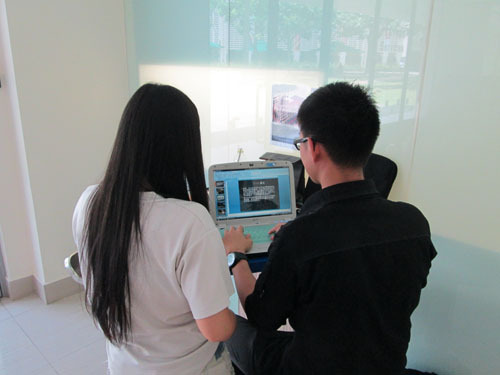
סינגפור מוכרת בעולם כמערכת חינוך ביצועים גבוהה.
כמו ד"ר. Pak Tee Ng דיווח לנו לפני כמעט שנה, Singapore has been implementing technology in its education system since 1997. A three step “תכנית אב” initiative was kicked off beginning with Masterplan One (1997-2002), the goal being to allow students computer usage for 30 percent of their curriculum time in fully networked schools with a computer to pupil ratio of 1:2. Masterplan Two of Singapore Information and Communications Technology (ICT) was aimed at motivating teachers to use ICT effectively in teaching and learning. Masterplan Three (2009-2014), currently in progress, is built on the first two Masterplans but aims to be more transformative, the goal being to equip students with the critical competencies to succeed in a knowledge economy. How are they doing in K through 12 ומעבר? שאלתי את ד"ר. Pak Tee Ng to give us an update.
DR. פאק טי נג הוא דיקן עמית, למידה מנהיגות, משרד ללימודים מתקדמים ולמידה מקצועית, וראש ופרוף, מדיניות וקבוצה האקדמית מנהיגות, במכון הלאומי לחינוך, אוניברסיטה הטכנולוגית נניאנג, רפובליקה של סינגפור.
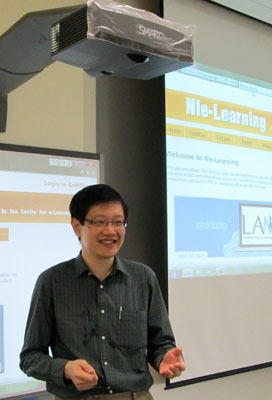
How has technology impacted the Singapore education system? מה אתה רואה כיתרונות וחסרונות מבחינה לימודית?
כַּיוֹם, campus-wide wireless Internet connectivity, classroom computers with projection equipment, teachers and students with their own laptops or other mobile ICT devices are commonplace in Singapore schools. Technology is quite pervasive, but it is not the equipment that we are interested in. מנקודת מבט לימודית, we are more interested in how technology can transform learning and bring it to a higher level for our students. Singapore believes in the use of technology in education. But we are cautious that we do not use technology for the sake of using it. Inappropriately used, technology can be a distraction rather than a help. We are encouraging our teachers to explore more in this area.
How is the role of the Singapore teacher changing in the digital age?
In the digital age, there will be a lot of information that is available in the virtual medium. Teachers have to help students make sense of this large volume of information and to differentiate good information from potential misinformation. Teachers have to facilitate student discourse in the e-discussion forums and lead students in creating actual usable knowledge. These learning activities require a high level of facilitative and synthesizing skills. עם זאת, that does not mean that teachers do not conduct face-to-face teaching. Contact hours become more valuable and should be focused on higher order thinking and learning, instead of information transmission.
Although the use of ICT is not exactly new in education, there is still a lot of room for development in this area. לכן, teachers are encouraged to be change agents of educational processes, so that new technologies may be harnessed for educational purposes. Senior teachers also play the role of mentors to beginning teachers in the effective use of ICT in their respective disciplines and to champion appropriate change.
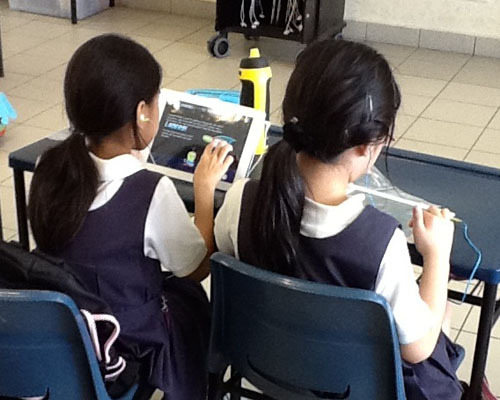
מדינות שלמות בארה"ב אימצו ספרים דיגיטליים. ספריות אוניברסיטת הופכים במאגרים של תוכן דיגיטלי. Many would say textbooks have already gone digital and indeed, the next generation of digital content is not far behind. What digital learning tools have been implemented in Singapore and what do educators see as the pros and cons of these?
Digital learning tools are getting more popular and pervasive in Singapore. University libraries are indeed going digital. למעשה, they are more accurately described as a ‘space’ than a ‘place’. Most academics and research students nowadays will download an e-article than read a hard-copy journal.
Many desktops have been phased out. Laptops, טבליות, iPads and Androids are quite common among young people. Various schools have also implemented Learning Management Systems (LMS’s) such as Blackboard, WebCT and Moodle. אבל, as I said, we are not as interested in the tool itself as the pedagogy that it can enable. Technology should not be used just to support traditional teaching methods in terms of productivity. במקום זאת, the challenge is to learn how technology can be used in a student-centered manner to enhance student learning or even to bring about learning that was not possible in the past without technology. In the digital age, information is made more easily available and that is good for education. עם זאת, having information easily available is not the same as having better learning. We are more interested in raising the standards of learning, rather than just having more information.
How has technology impacted curriculum design in Singapore?
באופן כללי, curriculum should be designed to achieve challenge, enjoyment, breadth and depth, personalization and choice, coherence and relevance. It is quite apparent that technology has the power to help in each of these areas. One of the advantages of ICT is that it can expand access to education. באמצעות טכנולוגיות מידע ותקשורת, students can access online course materials anytime and anywhere, learning at their own pace. E-discussion forums allow many students to discuss learning content at the same time. Video clips, audio sounds and graphical presentation bring content to life.
בסינגפור, one of the main impacts of technology is a shift in the mindset of educators to discover how curriculum and the teaching environment can become more learner-centered through the enabling of ICT. Instead of always relying on the traditional curriculum, we now have more experiments with modular approaches, flipped classrooms and learning content beyond the shores of Singapore. עם זאת, while encouraging experimentation, we continue to take a balanced and judicious approach in this area, paying attention not just to the tools but also to capacity building among educators for change. The use of technology and changes in curriculum design need to move in tandem.
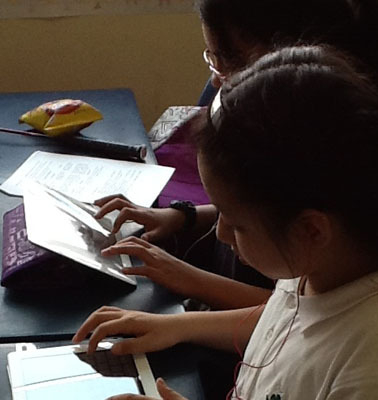
מחקר Pew האחרון שוב מציין כי השימוש בטבליות, טלפונים ניידים, Internet sources and social media platforms such as Facebook and Twitter continues to infiltrate classrooms in the US rapidly. Are you seeing the same trend in Singapore classrooms? באיזו מידה הוא השימוש בכלים אלה חלק של תכנית הלימודים שלך? האם יש גיל שמתחתיו אתה מאמין כלים אלה אינם מתאימים בכיתות?
בסינגפור, the use of tablets, טלפונים ניידים, Internet sources and social media platforms such as Facebook and Twitter is commonplace among young people. It is a lifestyle change, rather than an education change. באופן כללי, schools are free to experiment with social media tools as learning tools. Our concern is the responsible use of such tools among young people. We are educating the young regarding issues of cyber-wellness and cyber-bullying.
Is there an age below which ICT tools are not appropriate in classrooms? This is a difficult question to answer authoritatively. Some researchers do not recommend computer use for children under 3 שנים. There may be a problem of confusing “אמיתי” עם “virtual” when children are too young. בסינגפור, we are trying out some ICT tools, such as iPads, with preschoolers. אבל שוב, we are cautious and balanced in our approach. Preschoolers are at a stage of learning to master skills such as speaking and making friends. They should interact more with human beings and natural objects. אז, we start in a small way in preschool, and incrementally expose children to such tools at the higher levels, while educating them about cyber-wellness.
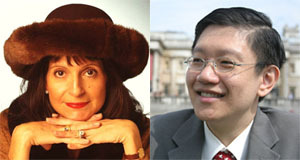
Photos courtesy of Pak Tee Ng and National Institute of Education, אוניברסיטה הטכנולוגית נניאנג, רפובליקה של סינגפור.
למאמרים נוספים בGot טק? סדרה: גלובל החיפוש לחינוך: Got טק? – פינלנד, גלובל החיפוש לחינוך: Got טק? – קנדה, גלובל החיפוש לחינוך: Got טק? – אוסטרליה, החיפוש הגלובלי לחינוך: Got טק? – ארצות הברית, החיפוש הגלובלי לחינוך: Got טק? IB בתי הספר בעולם וירטואלי, גלובל החיפוש לחינוך: Got טק? – ארגנטינה
בגלובל החיפוש לחינוך, להצטרף אליי ולמנהיגי מחשבה מוכרת בעולם כולל סר מייקל ברבר (בריטניה), DR. מיכאל בלוק (ארה"ב), DR. ליאון בוטשטיין (ארה"ב), פרופסור קליי כריסטנסן (ארה"ב), DR. לינדה דרלינג-Hammond (ארה"ב), DR. Madhav אוון (הודו), פרופ 'מיכאל Fullan (קנדה), פרופ 'הווארד גרדנר (ארה"ב), פרופ 'אנדי הארגריבס (ארה"ב), פרופ 'איבון הלמן (הולנד), פרופ 'קריסטין Helstad (נורווגיה), ז'אן הנדריקסון (ארה"ב), פרופ 'רוז Hipkins (ניו זילנד), פרופ 'קורנליה הוגלנד (קנדה), הכבוד ג'ף ג'ונסון (קנדה), גברת. שנטל קאופמן (בלגיה), DR. Eija Kauppinen (פינלנד), מזכיר המדינה Tapio Kosunen (פינלנד), פרופ 'דומיניק לפונטיין (בלגיה), פרופ 'יו לאודר (בריטניה), פרופ 'בן לוין (קנדה), לורד קן מקדונלד (בריטניה), פרופ 'בארי McGaw (אוסטרליה), שיב נדאר (הודו), פרופ 'R. נטריגין (הודו), DR. PAK NG (סינגפור), DR. דניז אפיפיור (ארה"ב), שרידהר ךאג'גופלן (הודו), DR. דיאן ראוויטש (ארה"ב), ריצ'רד וילסון ריילי (ארה"ב), סר קן רובינסון (בריטניה), פרופ Pasi Sahlberg (פינלנד), פרופ Manabu סאטו (יפן), אנדריאס שלייכר (PISA, OECD), DR. אנתוני סלדון (בריטניה), DR. דוד שפר (ארה"ב), DR. קירסטן Immersive Are (נורווגיה), קנצלר סטיבן ספאן (ארה"ב), איב Theze (Lycee Francais ארה"ב), פרופ 'צ'רלס Ungerleider (קנדה), פרופ 'טוני וגנר (ארה"ב), סר דייוויד ווטסון (בריטניה), פרופסור דילן Wiliam (בריטניה), DR. מארק Wormald (בריטניה), פרופ 'תיאו Wubbels (הולנד), פרופ 'מייקל יאנג (בריטניה), ופרופ 'Minxuan ג'אנג (סין) כפי שהם לחקור שאלות חינוך תמונה הגדולות שכל המדינות מתמודדות היום.
גלובל החיפוש לחינוך עמוד קהילה
C. M. רובין הוא המחבר שתי סדרות מקוונות רבים קוראות שלהיא קיבלה 2011 הפרס אפטון סינקלר, “גלובל החיפוש לחינוך” ו “איך וויל אנחנו קראו?” היא גם מחברם של שלושה ספרים רבי מכר, כולל אליס בארץ הפלאות Real.
עקוב C. M. רובין בטוויטר: www.twitter.com/@cmrubinworld


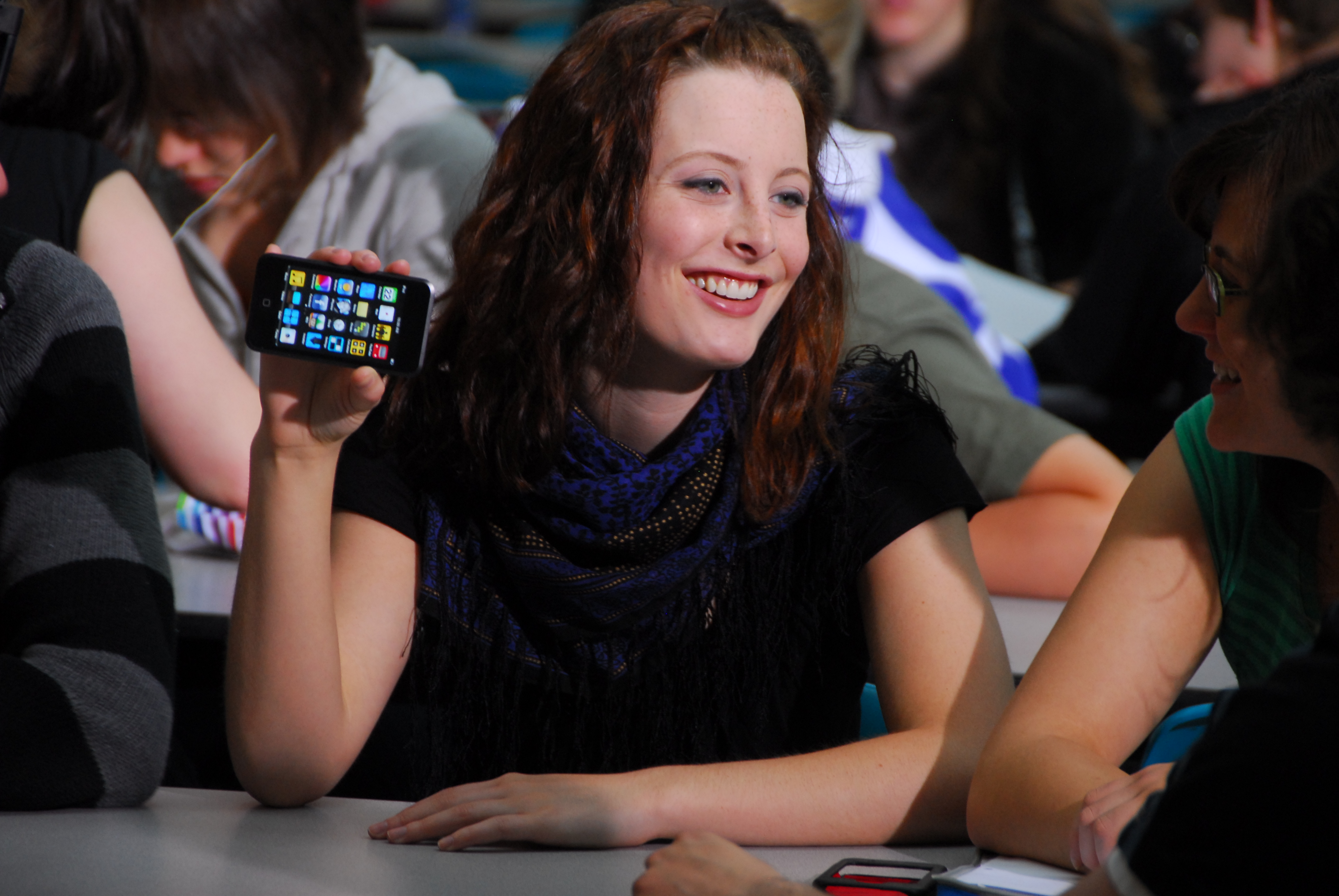
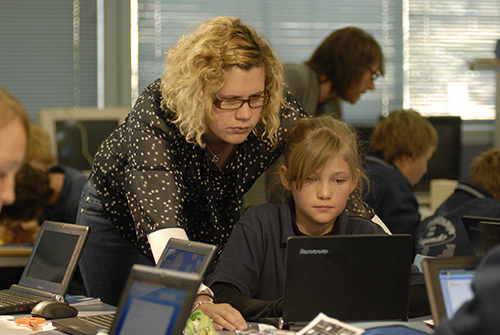
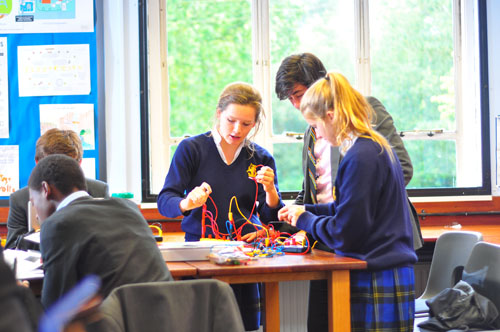
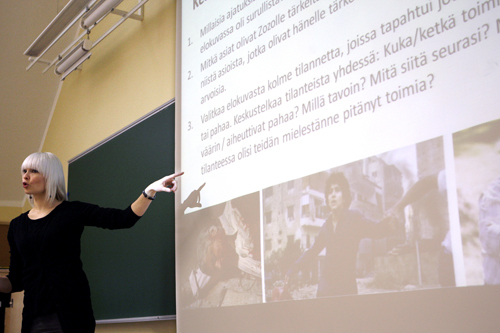
תגובות אחרונות